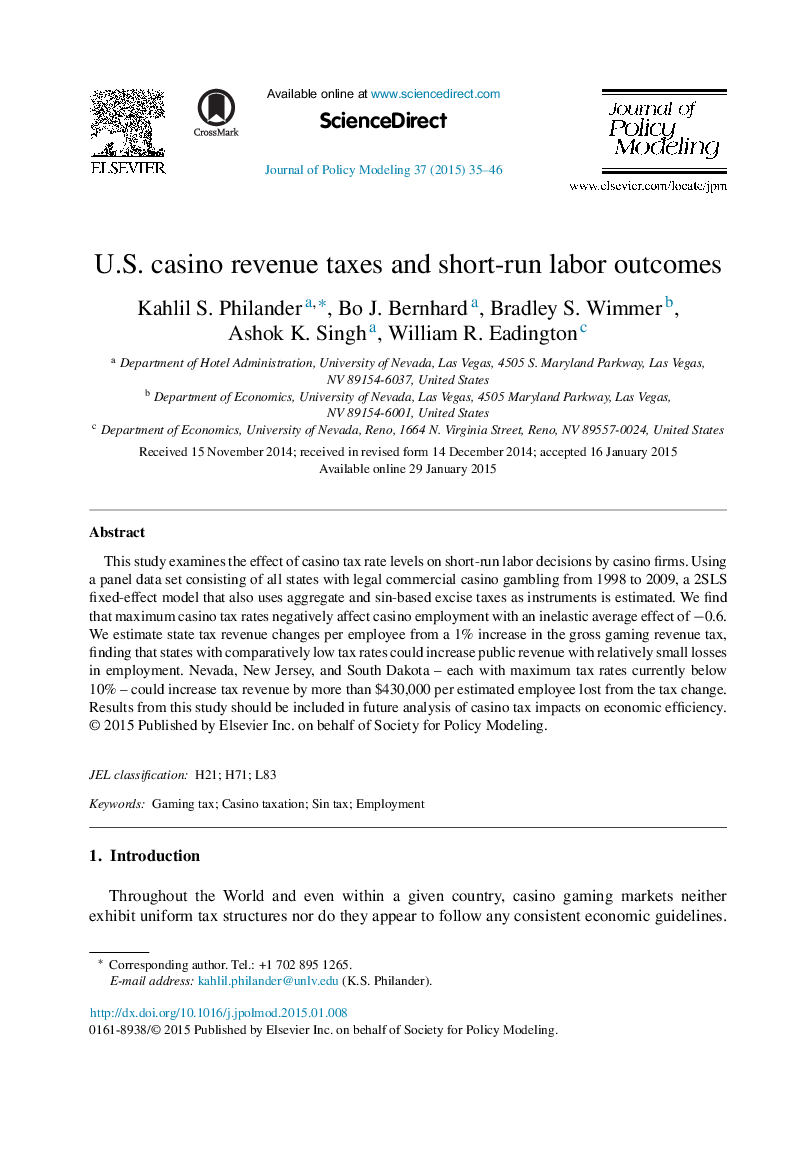| Article ID | Journal | Published Year | Pages | File Type |
|---|---|---|---|---|
| 968100 | Journal of Policy Modeling | 2015 | 12 Pages |
This study examines the effect of casino tax rate levels on short-run labor decisions by casino firms. Using a panel data set consisting of all states with legal commercial casino gambling from 1998 to 2009, a 2SLS fixed-effect model that also uses aggregate and sin-based excise taxes as instruments is estimated. We find that maximum casino tax rates negatively affect casino employment with an inelastic average effect of −0.6. We estimate state tax revenue changes per employee from a 1% increase in the gross gaming revenue tax, finding that states with comparatively low tax rates could increase public revenue with relatively small losses in employment. Nevada, New Jersey, and South Dakota – each with maximum tax rates currently below 10% – could increase tax revenue by more than $430,000 per estimated employee lost from the tax change. Results from this study should be included in future analysis of casino tax impacts on economic efficiency.
